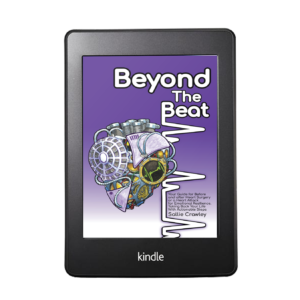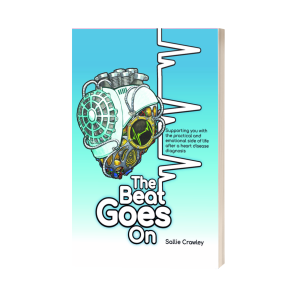Is how you feel after a heart attack, cardiac event, or heart surgery normal?
Suffering from anxiety, breathlessness, panic, sleeplessness, anger, loneliness, frustration, sadness, grief, or fear? All of these feelings are completely normal to experience during recovery from a Heart Attack, Cardiac Event, or Heart Surgery.
Your body has been through so much. You don’t feel like the person you were before the event so of course, you are going to grieve for that feeling of normality. The frustration of not being able to do normal everyday things like walk upstairs without getting breathless. Maybe not being able to play with the children or grandchildren? Sadness will kick in.
The important thing to remember is even though you feel alone, you are NEVER alone. Even if you live on your own there is help and people to talk to all around you!
Post Traumatic Stress Disorder (PTSD) is widely associated with events like serious accidents, violent assaults, or even coming back from war. However, it also can be brought on by serious health problems, exactly as a cardiac event, heart attack, or heart surgery.
The symptoms can range from severe anxiety, a high increase in irritability or anger, flashbacks or nightmares, avoidance of hospital appointments or doctor appointments or even taking the prescribed medication, negative and intrusive thoughts, and sleeplessness.
Each one of us is different in how these symptoms manifest. Certain triggers of avoidance can be not wanting to go to your next appointment at the hospital or with your primary doctor for the fear of what they will say during your check-up. You may even fear taking your medication because you don’t want to face what is happening to you. In the short term you are putting off something which is needed to help your recovery but in the long term this could make your condition worse and for surgery slow your recovery.
Flashbacks can happen at any point of the day or night. They can strike when someone talks about your surgery or condition, or if you smell the same cleaning product they used at the hospital, maybe even just walking out your front door into fresh air reminds you of going into the hospital. It can be something very simple yet very frightening. The nightmares that wake you up and keep you awake, scared to go back to sleep, yes this is also a symptom of trauma. In the short term, feeling like you have even less energy and increased irritability and ability to function. In the long term, not letting your body rest through sleep will make your condition worse.
Increased irritability and anger are very common in people suffering from trauma. It is not just a slight increase because of your condition, I mean a very high increase. Angry that your body is not working as it used to and angry at yourself for not being able to do anything about it or avoid it in the first place. Angry at everyone else for not understanding what you are going through, then angry at yourself again and feelings of guilt because you know they never could understand. It can be a very lonely time even if you have a lot of people around you.
What I am going to say to you now you will find it hard to believe if you are in the early stages of your diagnosis/cardiac event. These feelings of anxiety are temporary and can be eased and cured.

Your first port of call must always be to your primary care doctor. Trauma symptoms, as I have explained, can alter recovery time depending on how frequently these feelings occur. Doctors are there to listen to you and keep an eye on how you are progressing. They will refer you to a therapist if it is not something they can feel they can solve.
But what if you feel you need to start helping to ease these feelings sooner than you can get to your doctor or therapist? Well, there are plenty of things you can do yourself to aid your recovery from the trauma of a heart attack or heart surgery.
Talk, talk, talk, and when you think you’re done, talk some more
This does not have to be to your doctor. It can be to a family member or friend, neighbour, support group, or helpline, even a complete stranger who has been through something similar can be a good start. Talking things through can help you to start to come to terms with the events that have happened to you. It can make you start to accept how things are and put things into priority and order. Your friends and family need to know how you feel and communicating with them as to what you need will help.
Ask questions
The fear you feel may stop you from wanting to ask these questions. But speaking to your doctor or cardiologist about your fears and asking them what to expect will help you to realise how things are and how you can adapt. There is a chapter in my book that will help you collate together your thoughts along with a journal and tips on how to get the best out of your conversations with your medical team.
Be positive
Make sure you are as positive with yourself as you can be. Every time you feel a negative thought enter your head try and say out loud some positive sentences before it overwhelms you. Things like “this is a temporary feeling” “I can recover from this” and “I have a great support network around me”
Practise self-care
It’s a must! Eat healthily, take a bath, watch your favourite film, listen to your favourite music, and stroking your pet cat or dog can bring positive feelings to the forefront. Any time you feel anxious or frightened do something which makes you happy!
Journaling
Writing everything down, getting all your fears, anxieties, and emotions down on paper! Start with what you have done that day, and how you felt. Good and bad. It doesn’t even have to be done every day. Research has shown that 15 minutes 3 times a week gives increased feelings of positivity.
If you take it one day at a time, after a month you could start to see changes and how far you have come. Remind yourself of how you overcame those feelings. Writing really does help. Take your time with it.
Knowledge is Power
Reading is not only a peaceful exercise for you to practice, but learning more about PTSD and how to cope with it is something you can do to help yourself. Here’s a list of some books out there for you to start:
- 50 Things to Know About PTSD: You Don’t Have to Suffer Alone: 37 (50 Things to Know Coping With Stress)
- An Introduction to Coping with Post-Traumatic Stress, 2nd Edition (An Introduction to Coping series)
- Overcoming Trauma and PTSD: A Workbook Integrating Skills from ACT, DBT, and CBT
- The PTSD Workbook, 3rd Edition: Simple, Effective Techniques for Overcoming Traumatic Stress Symptoms
Book a Cardiac Trauma Reprocessing Session with me
The BLAST (Bi-Lateral Analysis and Stimulation) Technique® can help you to recover emotionally after a heart attack, heart surgery, or other traumatising events. It has been described as “EMDR on steroids!” You don’t have to feel as though stress, anger, anxiety, and frustration are a part of your everyday life now. PTSD and trauma ARE curable and I know that the BLAST Technique® can help you!
Every one of us that experiences cardiac events, heart attacks or heart surgery will get the ‘cardiac blues’ this is normal and will pass. As I mentioned above, increased or prolonged feelings are a sign of trauma or PTSD. A lot of us have experienced this, you are not alone.
There is support out there. It is good to talk.
For more information to help you in the early days of leaving the hospital, please give my book a read: The Beat Goes On: Your guide for before and after heart surgery or a heart attack for emotional resilience.
-
 The Beat Goes On Kindle Book: Supporting you with the practical and emotional side of life after a heart disease diagnosis£4.99
The Beat Goes On Kindle Book: Supporting you with the practical and emotional side of life after a heart disease diagnosis£4.99 -
 Beyond the Beat Kindle Book: Your guide for before and after heart surgery or a heart attack for emotional resilience£4.99
Beyond the Beat Kindle Book: Your guide for before and after heart surgery or a heart attack for emotional resilience£4.99 -
 The Beat Goes On Book: Supporting you with the practical and emotional side of life after a heart disease diagnosis£11.99
The Beat Goes On Book: Supporting you with the practical and emotional side of life after a heart disease diagnosis£11.99
